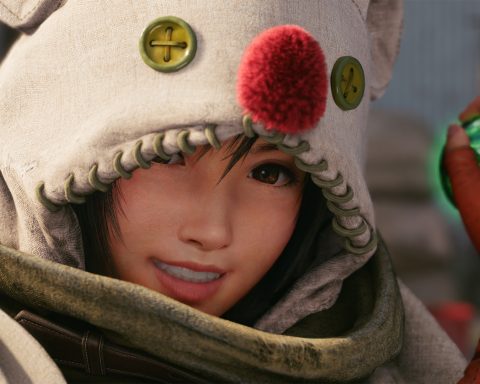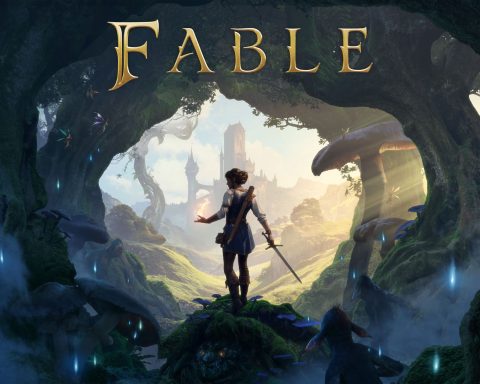 |
| Phil Gaskell |
Ripstone is a fairly new publisher on the scene. It had its breakout hit with Pure Chess on the PlayStation Vita and PS3, and has since published a wide range of quality digital titles – from the gorgeous Kyntt Underground to the Wolfenstein throwback, Gun Commando.
This success as a startup publisher comes despite a difficult market for publishers – see the demise of THQ. And, even more interestingly, Ripstone is seeing its greatest success on the PlayStation Vita – a platform that many dismiss because of poor market penetration.
So I sat down with Leo Cubbin, Ripstone Managing Director, and Phil Gaskell, Ripstone Creative Director. These two founded the company, and they share their insights into the PlayStation Plus subscription model, the eclectic range of games they publish, and some of their plans for the future.
Digitally Downloaded (DD): How is 2013 shaping up for Ripstone? What are your key goals for the year?
Leo Cubbin (LC): 2013 started with the launch of our PlayStation Mobile and PlayStation Vita game, Gun Commando, which was the first FPS on PlayStation Mobile. The critics have loved it so let’s hope it does well for the developer.
Phil Gaskell (PG): I think 2013 will hold a number of surprises for gamers and the industry as a whole, it’s going to be another year of change. At Ripstone we have some amazing games to unveil this year from a bevy of talented, and in some cases surprising, teams. My goal this year is to ensure we deliver and that those teams have everything they need to make their games great.
 |
| Leo Cubbin |
DD: Ripstone is one of the few publishers that has invested significant resources into the PlayStation Vita platform. What inspired you to work with the console, and have the low sales figures of it been a concern to you?
LC: Phil and I worked at Sony prior to setting up Ripstone, so we’ve been aware of Vita since its inception. It’s a fantastic gaming device and we’ve yet to meet a Vita owner who would disagree. The first game that was pitched to us was Pure Chess for the PS3 and Vita and we felt that a high quality chess game was a great fit for the platform. Vita has done well for us so far.
PG: I think if we were making $10m games for the device we’d be worried, but we’re not. Like Leo says it’s an amazing bit of kit, I don’t see a better dedicated handheld gaming device on the market and I take my Vita everywhere (when my 3yr old and 6yr old boys aren’t playing Frobisher or Rayman on it!). Sony are very experienced in the hardware game and I believe they will make sure the device succeeds. I think everyone forgets that it launched at a time when the global economy was in tatters, a tsunami had hit Japan, and unlike smartphone devices it isn’t subsidised. There is a lot of life left in the platform so critics shouldn’t write it off.
DD: What would you say have been the chief benefits and opportunities the Vita has afforded you as a publisher?
PG: The gamers that own a Vita appear to be a lot more willing to purchase digital content than PS3 owners. It didn’t take long for the sales of Pure Chess on Vita to surpass those on PS3. As a publisher of digital content that makes it attractive to us.
DD: Two of your published games – Big Sky Infinity and Knytt Underground – were PlayStation Plus “free” games on launch. What benefits do you realise from providing these games without upfront cost under the PS Plus Program?
PG: Being in PS+ at launch gave us a great presence on the PlayStation Store over Xmas, at a time when the redesign of the Store became more banner driven and favoured the big ticket games. Without that I fear those titles may have been lost in the mix. What giving them away free did was help us build a huge audience for those games instantly. In the case of Big Sky Infinity we saw a huge number of downloads over Xmas which we were really pleased with, and have plans to support the game further this year.
 |
| Gun Commando |
DD: Do you see a time where consumers will acquire the majority of their content through Cloud subscription models, such as PS Plus, and how can a third party publisher turn that into a sustainable business model?
PG: No, not for a long time yet. The cost of making the big games that underpin the games market and drive a lot of gamers to purchase is simply too high to be subsidised by a subscription model without the price of that subscription becoming unreasonable to the gamer. I do see a place for it long-term, and the power of free is a very sustainable business model for publishers on other platforms.
DD: There’s been a lot said about the “death” of the mid-tier publisher, following the demise of THQ and escalating costs for game projects. How do you see publishers such as Ripstone maintaining an edge through this market transition?
PG: The demise of THQ is sad, I had a number of friends at Vigil and was heartened to hear they’ve been saved by Crytek. At Ripstone we like to do things differently, and because we are relatively small it means we’re nimble and can react quickly to market shifts or zeitgeists. The larger corporate publishers can take a long time to change course and are often mired in layers of management all wanting to impress their opinions on a game – neither of these things are good for games, gamers, and game makers.
Ripstone is all about the developer, so we do everything to ensure their creative vision is delivered as true as it can be. Someone once described us as a publisher with a conscience. I like to think of us as boutique – we are haute couture, whereas the big corporate are off-the-peg. We can tailor our publishing approach to fit instead of trying to hammer a game or game developer into a standard shaped hole.
DD: Looking at your published game library, you’ve got everything from a Wolfenstein 3D throwback to a gorgeous non-linear platformer, to a Chess game. It’s an eclectic mix – how do you scout out the games that you would like to publish?
PG: Haha, it is quite a mix isn’t it? And just wait till you see what 2013 is going to bring!! We get a lot of games pitched to us all the time, and we try and look for a few key things. The first is passion, does the developer truly believe in their idea? What are their motives? If it’s purely financial then I get turned off, but if it’s clear to me there is something very personal in what they are creating then I get excited. We also look for relevance, is it first to market or best in market? Is it serving a gap in the market? Pure Chess was the first chess game on PlayStation 3 and PS Vita for example.
| Pure Chess |
DD: Will Ripstone be branching out beyond the PlayStation platforms in the future?
PG: Of course, whilst PlayStation and Sony have a special place in my heart (it’s where I started my career in games) it’s not about us. We support the developer and it’s often their choice what platform the game is released on, so you will see an eclectic mix of platforms as well as games this year!
DD: 2013 looks set to be a year in which the number of hardware options for players proliferates – there’s the Valve Steambox, the Ouya and a device from NVidia, amongst others. How do you assess the value of working on each new competitor that hits the market?
LC: We’re lead very much by the developers that we work with and the ideas they have. If they have an idea for a game on a particular platform that we like, we’ll look at the business case; how many units the hardware has sold, what type of people own it, how many of them are likely to buy the game and how much will it cost to develop. If we end up with a positive figure then it’s a yes!
PG: There is quite an exciting line up of hardware this year isn’t there? I can’t wait to see what else gets announced… I think Leo has summed it up, it’s partly about the idea the developer has and how it works on the device and showcases that device, and partly our own experience of the market and what sort of gaming taste we think those owners will have. I know it’s a grubby subject to some but it does end up having to be about money at some point, as we need to ensure the talented and creative people behind these games earn enough money to allow them to carry on creating cool and interesting games.
DD: Finally, what games and game designers inspire you, and why?
PG: Games that generate an emotional response in me really inspire me. I play lots and lots of games and have done since the age of 10. What I’ve learned is that games do ‘bang your dead’ and exhilaration really well. But they rarely move you like a good film or book. I’m yet to play a game that makes me cry (well, not for the right reasons anyway) but I’m seeing more and more games that have been designed to get me emotionally invested in them. Heavy Rain from Quantic Dream and The Walking Dead from Telltale Games are both superb examples. Both had me squirming in my seat with the former making me do things that made me disgusted in myself (I actually threw the controller down at the drug dealer scene after I made my choice, I was horrified with what I’d just done) and the latter made me really care about little Clementine; I genuinely didn’t want to see her harmed, physically and emotionally.
More games like this please and more game designers with a sense of story crafting, drama, and an innate talent to know what moves us. We should be cloning Jenova Chen and David Cage.






